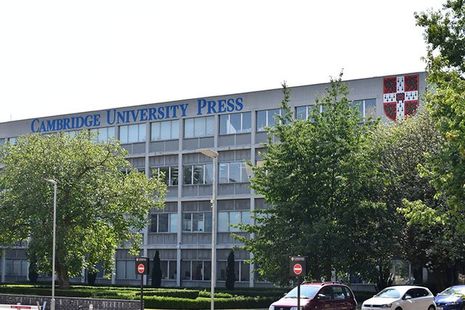Cambridge waives publishing fees for low income countries
Academics across 5000 institutions from 107 countries will be able to publish without a paywall in 400 Cambridge journals

Cambridge University Press (CUP) is to drop open-access publishing fees for academics in low and middle income countries.
Academics across 5000 institutions from 107 countries will be able to publish without a paywall in 400 journals covered under the Cambridge Open Equity Initiative. The scheme also extends to independent scholars in these countries.
The initiative, set to launch in July, is meant “to support authors in low- and middle-income countries who wish to publish their research open access but do not have access to funding.”
CUP is seeking support for the initiative from institutional partners, such as major university libraries, to make it sustainable.
Currently, without fee waivers, journals charge around $2000 or $3000 in article processing charges. Several institutions - primarily in high-income countries - have ‘transformative agreements’ which allow academics at these institutions to avoid this charge, disadvantaging scholars in low and middle income countries.
Academics in low and middle income countries who are denied the larger audience of open access publishing therefore face their work being cited less often, which can be a factor in hiring and promotion decisions.
Earlier this year, CUP announced that more than half of its research papers are published open access and that the vast majority will be published open access by 2025.
Mandy Hill, the managing director of academic publishing at CUP, said it was necessary to “publish[ing] the best research, wherever it comes from.”
Writing in Times Higher Education, Hills recognised the importance of diversity among academic authors but she signalled that the initiative was about much more than that. “The problem is not simply about diversity among authors – critical as that is to the intellectual lifeblood of academe. We risk missing out on vital contributions to everything from mental health to clean energy from academics in low- and middle-income countries. Researchers in such countries played critical roles in understanding development economics and democratisation, the emergence of stem cell technology and sequencing the Omicron variant of Covid-19”.
Hills mentions that the initiative won’t be sustainable unless it receives sufficient external support and finds it risky. However, she said that CUP “have to try – and the global scholarly community will benefit as we do so.”
 News / SU reluctantly registers controversial women’s soc18 December 2025
News / SU reluctantly registers controversial women’s soc18 December 2025 Features / Should I stay or should I go? Cambridge students and alumni reflect on how their memories stay with them15 December 2025
Features / Should I stay or should I go? Cambridge students and alumni reflect on how their memories stay with them15 December 2025 News / Dons warn PM about Vet School closure16 December 2025
News / Dons warn PM about Vet School closure16 December 2025 News / Cambridge study finds students learn better with notes than AI13 December 2025
News / Cambridge study finds students learn better with notes than AI13 December 2025 Comment / The magic of an eight-week term15 December 2025
Comment / The magic of an eight-week term15 December 2025









